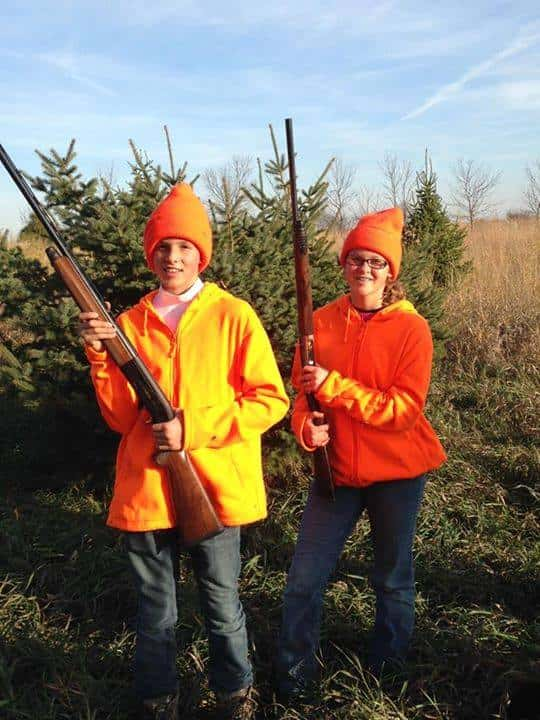
Just Part of the Fun. Getting new hunters out for a dedicated day should be just part of a fuller mentorship experience. Building in practice ahead of the event and follow-up trips will help instill a deeper appreciation in new hunters. Simonson Photo.
By Nick Simonson
The recruitment, retainment and reactivation (R3) efforts underway across the hunting and fishing world are notable, monumental and ultimately important to the future of the outdoors and conservation.
States across the map have created special youth hunting weekends ahead of the general openers and agencies sponsor dedicated programs for facilitating time in the field for young and inexperienced hunters in conjunction with non-profits like Pheasants Forever, the Ruffed Grouse Society and local rod and gun clubs and their volunteers. The last 20 years have seen a seismic shift toward efforts focused on young people and recruiting new hunters to the fold. The transition of information from generation to generation has always been at the core of both the traditions of hunting and conservation.
The next important step in taking these special days or weekends and getting the most out of them is making them part of a larger mentorship process and building a relationship with new hunters ahead of and after the event. In this time where social distancing is still encouraged, it may be that one-on-one mentorship is the best option and working with just one or two mentees is the safest option.
In that process, however, comes the unique ability for hunters to connect personally, to encourage growth and pass on vital information for a more successful first hunt, setting the stage for a lifetime in the field. This silver lining to our current social situation allows mentors to provide a deeper experience, more personal insight and increase their ability to connect with new hunters. Additionally, this stretch of August ahead of those mentoring events and dedicated R3 weekends provides an opportunity to lay the foundation for a successful hunt with time for trap shooting, archery practice, and the sighting in of a rifle.
It also allows for a fuller experience for both the mentor and the mentee, stressing the practice required in the process of becoming a more complete hunter. In turn that preparation will help firm up the recruitment of individuals new to the amazing experience and tradition unique to our country and continent.
A student who is well prepared for a first trip in the field will likely find more success. A more successful first experience means a higher likelihood of enjoyment. A higher likelihood of enjoyment means a better chance of forging a lifelong hunter. Instilling the passion and need to be in the outdoors will also help that individual pass what was taught to them on to others somewhere down the line and instill in future generations the need to participate in the outdoors and not only conserve the opportunities that are available now but also work to increase habitat and access to huntable areas in the future. Thus, the cycle will continue and the importance of continuing the mentorship process, despite today’s new challenges, can be seen.
In addition to the preparatory time afforded for mentorships in late summer, the stretch of autumn following the rush of the general openers also allows opportunities to follow up on teachings in the field and encourage continued use. In short, a mentorship doesn’t end with that special day chasing roosters, or watching deer filter into the field at sunrise. Opportunities abound to continue the growing tradition, and utilizing days later in the season, where the flood of other hunters has faded and pressure on public lands has decreased, and new challenges and elements present themselves, is key in continuing the mentor-mentee connection and that link between the new hunter and the outdoors. For those invested in hunting and in the next generation, this commitment to continue the process of passing on information likely doesn’t feel like work.
Afterall, any excuse to get into the field is a good one.
This year consider the special seasons available to young and new hunters not to be the culmination of recruitment efforts, but rather just a highlight in the process of onboarding new sportsmen and conservationists. Like bagging a first bird, processing a deer, or getting a flock to come in to a call, it should serve as a checkpoint in the path to an understanding and appreciation for all the good things that go with that special day and those that come ahead of and after it…in our outdoors.
